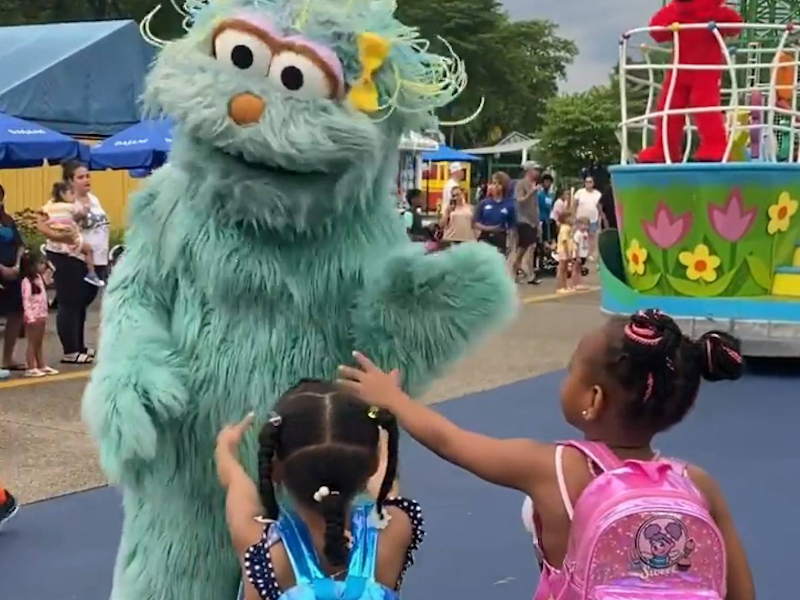(Image Source: Instagram @__jodiii__)
It was heart breaking to watch the disappointed faces of two six-year-old African American girls who were ignored while reaching out for a high five with Rosita, a Sesame Street costumed character at the Sesame Place theme park in Langhorne, Pennsylvania.
Thanks to 21st century phone technology and social media the incident was viewed around the world. And, the children’s parents have refused to simply walk away from the heartbreak their daughters felt. They are suing the corporation that owns Sesame Place.
If you are a Black person in America the experience of being ignored or overlooked is not something unknown to you neither as an adult or when you were a youngster. Many Black people have learned to block out the effects of being invisible and have learned to “keep it moving,” but what is the cost to their psychological wellbeing?
How many times have little Black girls and boys been overlooked and disregarded not only by cartoon characters in a park but by educators, sales people, politicians and those in the medical profession?
How many times have Black girls and boys raised their hands in a classroom eager to share their answer to a teacher’s question but somehow didn’t get called?
How many times have Black children in a corner store been overlooked while the shopkeeper waits on a White customer. And, in the spirit of “keeping it real,” we know this scenario continues to happen to Black grown folks on a regular basis.
Thankfully the parents of these two children, who had paid for tickets costing anywhere from $35 to $55.99 per person for a fun day at Sesame Place, didn’t just suck up the negative experience and walk away after seeing their daughters’ disappointment and hurt.
These parents are not only speaking out they are taking it to the next level and are suing the corporation that owns Sesame Place. It’s important to note that Sesame Place is not owned or operated by the Sesame Workshop, the warm and fuzzy non-profit organization that produces Sesame Street on PBS.
We would like to believe that after seeing the sad faces of these children who simply wanted the costumed Sesame Street character to happily acknowledge them, the corporate owners of Sesame Place would go beyond making excuses and do all they can to ensure that no other child gets their feelings hurt in this way. We also know that so often change only comes when the business’ bottom line is affected. Hence, the parents are opting to take the matter to court.
Rosita! Do you see us now?

Karen Warrington has had a decades long career as a broadcast journalist, communications professional, performing artist, and documentary filmmaker. She has traveled extensively throughout Africa, the Caribbean, Europe, and Asia. She is committed to being a voice for the African Diaspora.





